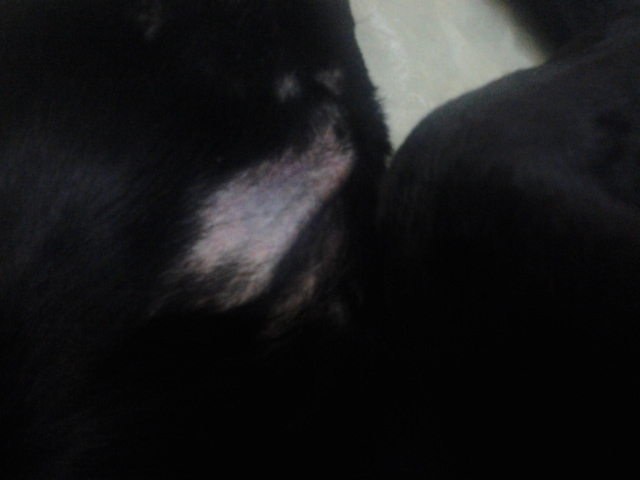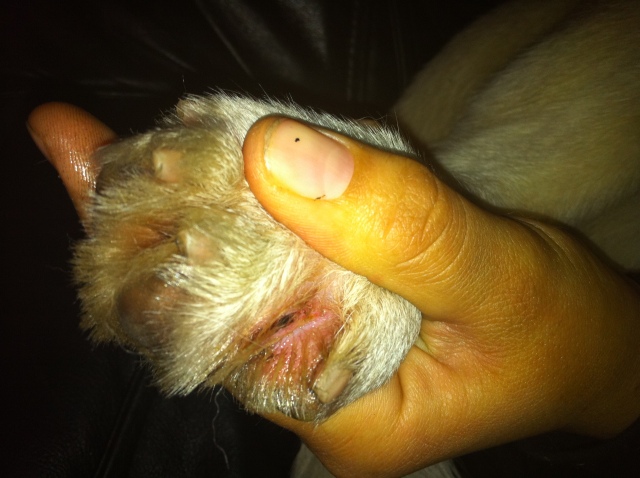QuestionQUESTION: Im looking for a career with animals But Im not too sure if I would want to be a veterinarian. All I have really seen of vets is when they come in after the tech and look at my pet quickly. Later the technician comes back in and actually takes care of the animal. What I want is to work a lot with animals. Would being a vet tech be better for me? Although I do wish to get payed well, i do understand that you have to start slow and work your way up. Thats fine with me, i just dont want a job that i would eventually get bored of. I do love animals but I also have to make a living! So would it be even better for me to be some sort of vet tech specialist? I would like to speak with someone that works in this field and would tell me what goes on behind those doors that I, as a pet owner, haven't seen.
ANSWER: Looks like you have done your homework Elizabeth and are standing at the threshold of an exciting new career goal.
While it's true that Vet Techs do 95% of the work in a normal clinic, they don't get paid any where near what they are worth.
The average vet tech starting out makes anywhere from $10. to $12.50 an hour, and that is a licensed tech. Once you have a few years experience, you could make up to $18-25 an hour with benefits, depending on where you work.
Now some vet techs that work in labs, or run animal shelters make a lot more money, but the trade off is the hours of painful work putting animals to sleep by injection. That includes hundreds of cat, kittens, puppies and dogs on top of other animals. Not a good career choice if you love animals.
Vet tech specialists DO make a lot more money, but you first must be licensed and usually have a lot of years under your belt to start. Some of the specialties you can start on right away and that is the way to go. They require a lot more training and taking tests, but if that doesn't bother you then I say do that for sure. I always encourage ALL vet techs to become specialists of some sort. I was a Small Animal Nutritional Consultant and a Small Animal Dental Specialist. The pay scale, recognition and respect are worth it!
Veterinarians make a lot more money but have more schooling. Good ones work hand in hand with their techs and reward them well with paid vacations, medical and dental plans etc. The downside is that the vet takes a lot of work home with them mentally, (so do we however) but they also have to deal with bad clients, bad employees, taxes and all the headaches of running a business.
Vet techs CAN legally own a veterinary hospital as long as a licensed veterinarian is working there. That is a real bonus if you really want to make some money, but then again you also get the above-mentioned headaches.
The NAVTA and other organizations are still working hard to promote the careers of vet techs to get us the respect and recognition that we deserve. It is not easy however. Too many vets, especially in small towns, are perfectly happy letting the kennel girls be the vet techs. Most owners don't know this and it's not a good thing. Of course the vet has to supervise every move they make as they are the ones liable if anything goes wrong.
As far as behind the scenes stuff, what I can tell you is this:
the 95% of the work we do? well, it's all in the blood work we draw from the cat/dog whatever, running the blood work, doing the xrays, ultrasounds, or scans, prepping animals for surgery PROPERLY, doing dental cleanings, assisting in surgery and monitoring the animals, taking care of post-op patients, cleaning up after those patients, making sure the right animals are worked on, doing charts and keeping other medical records, sterilizing surgical set-ups, doctors surgery gowns, hats and gloves and other instruments, Educating clients and sometimes classrooms on pet care, sitting with grieving clients over the loss of a beloved pet, often being the one that does the euthanasia of said beloved pet, and probably a whole lot more that are too numerous to list!!
So for all of that - and all in one day, mind you, we get paid what I mentioned above. The trade off is that we are animal advocates and we do everything in our power to protect the pets, promote and educate our clients about proper health practices with their pets.
It's a pretty darn rewarding tradeoff, let me tell you!! I loved being an active vet tech and would still be doing that if I had not injured my back so severely at work. Oh ya, did I mention injuries?
We are about 300 times more likely to be hurt seriously on the job then the vet is. But then again, it's part of the trade off.
So you decide Elizabeth. I will tell you this. Get into a GOOD vet tech school. Learn well and if you decide part way through, you can always take on becoming a vet after vet tech school. It could help you get into vet school much easier and you will already be ahead of the game in experience. Win - win.
Let me know what you do! Good luck to you. :-)
---------- FOLLOW-UP ----------
QUESTION: Wow, thank you! That has really helped me clear up on some doubts I have! I think I will follow the vet technician path and later on become a specialist! I'm sure that if I do my best, it will be possible. I just want a career that I would love. Thank you for the help!
You mentioned vet techs get hurt a lot, what kind of accidents could one have?
Also, what classes could I take in college that would help? I have seen some pre-vet programs. Do you know anything about that?
AnswerWhat kind of accidents could a vet tech have?
Well, getting bit is at the top of the list. Falling on cement floors, lifting big dogs and hurting your back (like I did) from repetitive movements, Being knocked over by crazy dogs while you are working on another one, straining your shoulders, hands and neck. Standing for long hours on hard floors. Even with comfort pads it's wearing on you. Chemical spills, radiation exposure, burns from cauterizing instruments, etc.
I had a vet ram a very large needle through my hand once, I had a kennel girl let go of a dog that hit me in the head with his large head and knock me over. I had to lay on a goat once, wrestle with a 250 lb. pot-bellied pig, and have been chased by a mean cow.
I have scars all over both hands and my lower arms from cats scratches, bites and squirrels.I was attacked by a chihuahua once and have a 2 1/2" long scar on my left thumb from her. She had to be quarantined for rabies a she didn't have a vaccination at the age of 5!! I have had cats bite me HARD and had nasty infections from that.
I even had a disgruntled ex-employee that I fired send her ex husband in to scare us for a refrigerator that she left only to have US call the sheriff on him. I had to threaten him with a big hammer so he would leave us alone. He broke our door first, which was locked, by slamming it so hard he shattered the door frame.
Never a dull day!!! :-)
As far as schooling goes, aim for as many biology and zoology classes as you can get. Pre-vet programs are always good. Read, read, read, whatever you do. Be really involved in your profession (should you choose it) and help promote it.
Remember that their are hundreds of jobs for vet techs out there- by that I mean a variety of ways you can be one. You can work at a zoo, a wild animal park, in a research lab, as an equine vet tech, as health dept worker, a technician in humane societies. You can become an educator, teaching veterinary technology. You can run for positions on state boards. You can work in private or government run practices. You can do search and rescue work.
The list is large and extensive. Go to the http://www.navta.net./ and look around. That might answer many questions for you.
Here are some other links:
for specialties:
http://www.navta.net/index.php?section=specialties&page=specialties
Good luck Elizabeth! Keep in touch.

 My 5 month old Labrador blad spot
QuestionBald spot on neck
Bald spot on leg
My 5 month old Labrador blad spot
QuestionBald spot on neck
Bald spot on leg
 Radioiodine treatment of hyperthyroidism in our cat
Question
Molly
Dear Jana,
I wrote you near the end of
Radioiodine treatment of hyperthyroidism in our cat
Question
Molly
Dear Jana,
I wrote you near the end of
 toe web injury
Question
foxy toe
I noticed a cut on the web of one of
toe web injury
Question
foxy toe
I noticed a cut on the web of one of
 Cat Scabs and Hair Loss
Question
Scab Scab Again
My family just ad
Cat Scabs and Hair Loss
Question
Scab Scab Again
My family just ad
 Tailed Manx Kitten docking tail?
QuestionQUESTION: Hello,
I got tailed manx kitt
Tailed Manx Kitten docking tail?
QuestionQUESTION: Hello,
I got tailed manx kitt